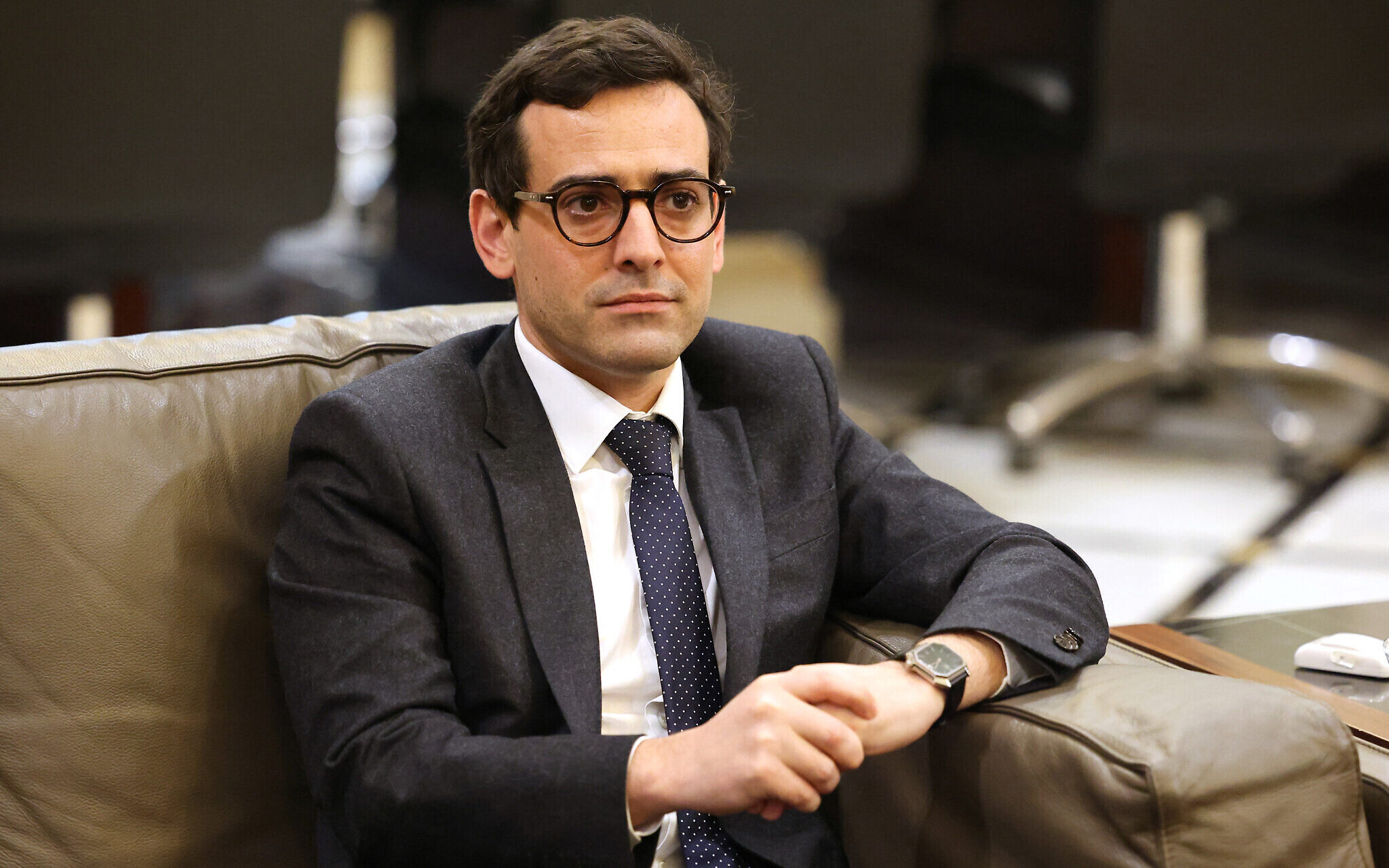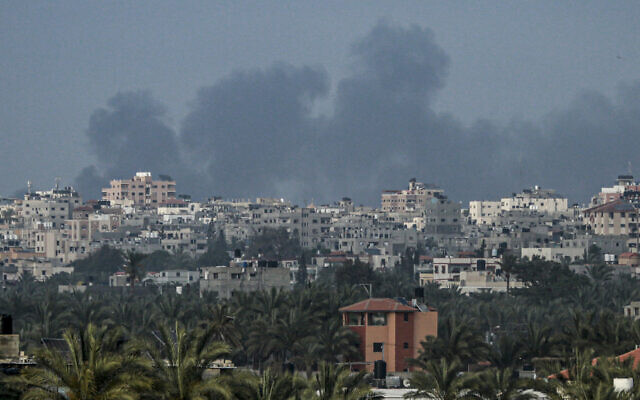



France’s foreign minister was to push proposals to prevent further escalation and a potential war between Israel and the Iran-backed Hezbollah terror group during a visit to Lebanon on Sunday, as Paris was seeking to refine a roadmap that both sides could accept to ease tensions.
France has historical ties with Lebanon, and earlier this year its top diplomat Stephane Sejourne delivered an initiative that proposed Hezbollah’s elite unit pull back 10 kilometers (6 miles) from the Israeli border, while Israel would halt strikes in southern Lebanon.
The visit was going forward after an Israeli soldier was lightly injured by a Hezbollah rocket barrage on the Meron area in northern Israel on Saturday night.
Ziv Medical Center in Safed said the soldier was brought to the hospital in good condition after sustaining a shrapnel injury. He was treated overnight and released Sunday morning, the hospital said.
The late-night barrage comprised at least 26 rockets that crossed the border, impacting open areas near the town of Bar Yohai, the Israel Defense Forces said.
Hezbollah claimed responsibility for the barrage, saying it had launched dozens of Katyusha rockets at the town of Meron and nearby communities, and not the military’s nearby air traffic control base.
Unlike towns closer to the Lebanon border, Meron and the surrounding communities have not been evacuated.
The terror group said the attack was a response to recent Israeli airstrikes on towns in southern Lebanon, which the IDF had said targeted Hezbollah positions.
Following the barrage, the military said Israeli fighter jets struck Hezbollah sites in southern Lebanon overnight.
The targets included a building used by the terror group and other infrastructure in Maroun al-Ras, infrastructure in Tayr Harfa as well as another building in Yarine, according to the IDF.
Israel and Hezbollah have exchanged tit-for-tat strikes regularly since October 8. The day after Hamas’s unprecedented attack on Israel in which terrorists murdered some 1,200 people, mostly civilians, and kidnapped 253 to Gaza, the Lebanese terrorist organization began firing rockets at Israel in solidarity with its Palestinian ally in Gaza.
So far, the skirmishes on the border have resulted in nine civilian deaths on the Israeli side, as well as the deaths of 11 IDF soldiers and reservists. There have also been several attacks from Syria, without any injuries.
Hezbollah has named 289 members who have been killed by Israel during the ongoing skirmishes, mostly in Lebanon but some also in Syria. In Lebanon, another 56 operatives from other terror groups, a Lebanese soldier, and at least 60 civilians, three of whom were journalists, have been killed.
France’s proposal, which has been discussed with partners, notably the United States, has not moved forward. Still, Paris wants to keep momentum in talks and underscore to Lebanese officials that Israeli threats of a military operation in southern Lebanon should be taken seriously.
“If I look at the situation today, if there was not a war in Gaza, we could be talking about a war in southern Lebanon given the number of strikes and the impact on the area,” Sejourne said after visiting the United Nations peacekeeping force in Naqoura, southern Lebanon.
Hezbollah has maintained it will not enter any concrete discussion until there is a ceasefire in Gaza, where the war between Israel and Hamas has entered its seventh month.
Israel has also said it wants to ensure calm is restored on its northern border so that tens of thousands of displaced Israelis can return to the area without fear of rocket attacks from across the border.
“The objective is to prevent a regional conflagration and avoid that the situation deteriorates even more on the border between Israel and Lebanon,” French foreign ministry deputy spokesperson Christophe Lemoine said at a news conference.
Israel has threatened to go to war to force Hezbollah away from the border if it does not retreat and continues to threaten northern communities, from where some 70,000 people were evacuated to avoid the fighting.
On Saturday, Hezbollah’s Deputy Secretary-General Naim Qassem warned that full-scale war will not bring residents of northern Israel home, but rather end their presence there “once and for all.”
“[Israeli Defense Minister Yoav] Gallant threatens us that if we don’t stop the attacks, he will attack Lebanon to return the residents of the north to their homes,” he said, in a statement quoted in Hebrew media.
“I say to Gallant that this war will not only cause the residents to not return to their homes, but will push their return further and further away and is likely to end their presence once and for all,” he added.

